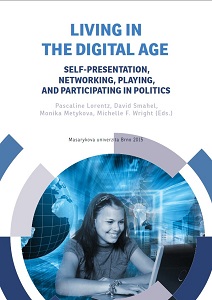“Fraped” Selves: Hacked, Tagged, and Shared Without Permission. The Challenges of Identity Development for Young People on Facebook
“Fraped” Selves: Hacked, Tagged, and Shared Without Permission. The Challenges of Identity Development for Young People on Facebook
Author(s): Anca Velicu, Monica Barbovschi
Subject(s): Personality Psychology, Psychology of Self, Behaviorism, ICT Information and Communications Technologies
Published by: Masarykova univerzita nakladatelství
Keywords: social networking sites; identity development; adolescent; online privacy; personal data misuse;
Summary/Abstract: Social Networking Sites (SNS) play an important role in the daily lives of adolescents by helping them to develop two core developmental characteristics –identity and intimacy. SNS can also contribute to developing adolescents’ identities by eliciting peer feedback (Valkenburg & Peter, 2011). However, children’s unpleasant experiences with the misuse of their online personal information are among the rapidly increasing online risks, as reported by children ages 9–16 in the Net Children Go Mobile (2012–14) and EU Kids Online III (2012–14) projects. These troublesome situations – e.g., dealing with impersonation through hacked accounts (with the impersonator sending rude messages to damage reputation) or dealing with slanderous pages created by peers – pose challenges to young people’s need for creating and maintaining their online identity in the context of their peer relationships.
Book: Living in the Digital Age: Self-presentation, Networking, Playing, and Participating in Politics
- Page Range: 15-32
- Page Count: 18
- Publication Year: 2015
- Language: English
- Content File-PDF

